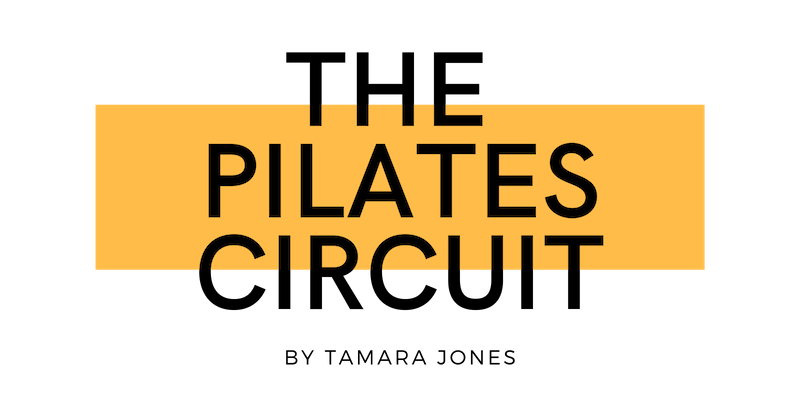Does Reformer Pilates Build Muscle? (Everything You Need to Know)
Reformer Pilates is a form of exercise that aims to tone muscles, improve flexibility, and enhance overall fitness. But does reformer Pilates build muscle?
Understanding the Impact of Reformer Pilates on Muscle Development
Reformer Pilates targets specific muscle groups while improving overall flexibility and coordination.
The Machine: How Reformer Pilates Works on Muscles
Reformer Pilates utilizes a specialized machine consisting of springs, straps, and a moving carriage. These elements provide resistance and support for various exercises, allowing practitioners to engage different muscle groups effectively.
The controlled movements on the reformer target specific muscles while maintaining proper form and alignment.
Does Reformer Pilates Build Muscle?
There is limited research on the muscle-building effects of reformer Pilates compared to traditional strength training methods.
Scientific Insights and Expert Opinions
According to research and expert opinions, reformer Pilates can contribute to muscle growth, particularly in individuals who are new to strength training or those seeking a low-impact alternative.
Regular practice can lead to improvements in muscle tone, endurance, and overall strength.
Comparing Reformer Pilates to Traditional Strength Training
Pilates emphasizes functional movements that engage multiple muscles simultaneously, resulting in a more balanced and integrated physique.
Traditional strength training often relies on free weights or resistance machines with a focus on isolating individual muscle groups.
Reformer Pilates doesn't produce the same increase in muscle size as heavy weightlifting, but it offers improved flexibility, core stability, and a mind-body connection.
Key Benefits of Reformer Pilates Beyond Muscle Building
Beyond its potential for muscle growth, reformer Pilates offers many additional benefits for both body and mind.
Enhanced Flexibility and Core Strength
Reformer Pilates increases flexibility and core strength. By performing dynamic stretches and core-focused exercises on the reformer, practitioners can develop greater mobility, range of motion, and stability.
Improved Posture and Balance
Reformer Pilates emphasizes proper alignment and body awareness, which can help improve posture and balance over time.
By strengthening the muscles that support the spine and promoting better alignment, individuals can alleviate chronic pain, reduce the risk of falls, and enhance their overall quality of life.
Reformer Pilates for Different Fitness Levels
Reformer Pilates can be tailored to suit your individual fitness goals and abilities.
Tailoring Your Pilates Routine for Muscle Growth
Instructors can design customized workouts by adjusting the resistance, intensity, and complexity of reformer exercises.
This customization challenges muscles and promotes growth while ensuring proper form and safety.
Maximizing Muscle Growth with Reformer Pilates
Achieving your desired muscle development through reformer Pilates requires a comprehensive strategy that extends beyond the studio.
Complementary Practices and Nutrition Tips
Complementary practices such as yoga or strength training can further enhance muscle development.
A balanced diet rich in protein and nutrients can help support muscle recovery, repair, and growth.
RELATED: Does Pilates Tone Your Body?
Starting Your Journey with Reformer Pilates
Experience the transformative benefits of reformer Pilates for yourself.
Transform your fitness journey with private 1x1 Pilates in New York. At The Pilates Circuit, we specialize in personalized one-on-one training tailored to your unique goals. Whether you're improving posture, building strength, or enhancing mobility, our expert instructors are here to guide you every step of the way.
Book an intro session to experience how targeted training can make a difference in your life. Choose from our Chelsea Private Pilates Studio or NOMAD Pilates Studio for a welcoming and focused environment.
FAQS
-
Yes, Pilates-based strength training can aid in weight loss and muscle toning when combined with a balanced diet and regular exercise.
Pilates-based strength training exercises target multiple muscle groups simultaneously, helping to increase muscle mass, which in turn can increase calorie burn.
-
Feeling sore after a Pilates workout can vary depending on your fitness level, the intensity of the workout, and the specific exercises performed.
While some muscle soreness can be normal, especially if you're challenging your body with new movements, it shouldn't be excessive or debilitating. If you're experiencing severe or persistent soreness, it could be a sign that you're overdoing it or not performing the exercises with proper form.
We aim for a little soreness, but the better your recovery (food, sleep, rest), the less soreness you should experience.
-
Hiring a private Pilates instructor offers personalized attention, tailored workouts, and focused guidance. This leads to faster progress and reduced risk of injury. Working with a private instructor also allows you to address specific goals and receive immediate feedback.
When you take group classes, you get the benefit of movement but often not the progression and programming of working with a private instructor.
By focusing on form and weekly progressions, you’ll achieve your goals and see a difference a lot faster with a private trainer.
Meet Tamara – Your Pilates Expert
Hi! I’m Tamara, a Certified Pilates Instructor and founder of The Pilates Circuit in NYC. With 9+ years of experience, I specialize in results-driven, athletic Pilates to improve posture, core strength, and overall wellness. Whether you're recovering from diastasis recti or leveling up your fitness, I’m here to guide you every step of the way!
Find us on Instagram:


